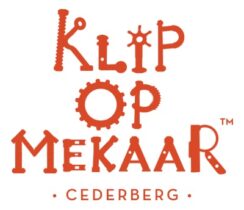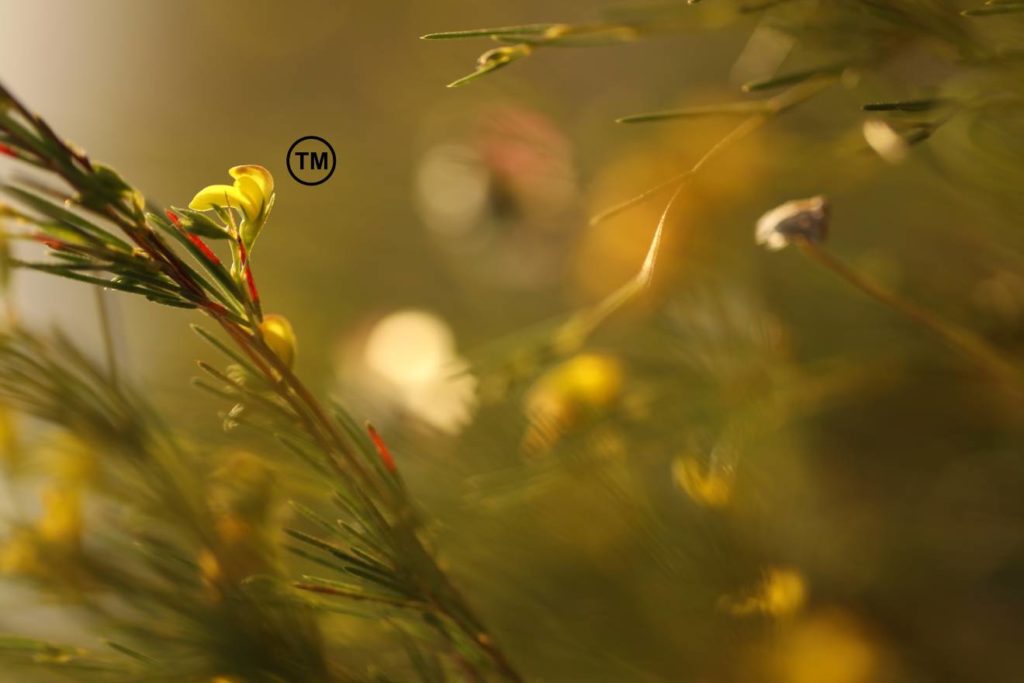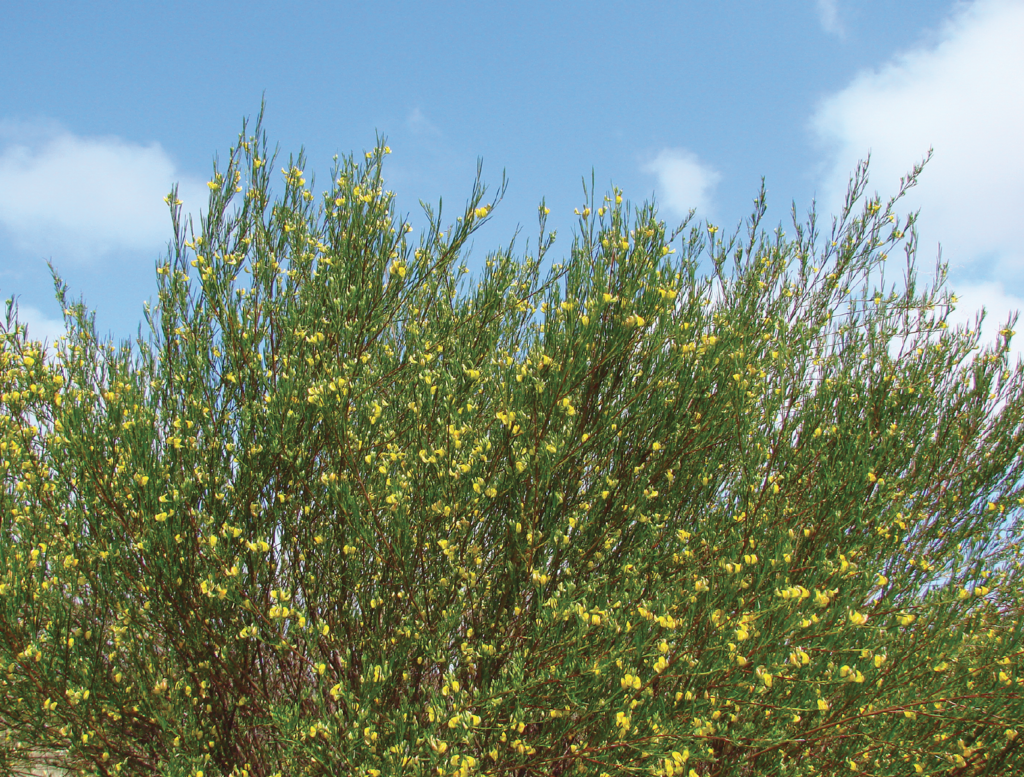As a result of it becoming increasingly well-known for its health-giving benefits, and in response to consumer interest in health and wellbeing, international demand for Rooibos increased dramatically by the early 2000s. This led to Rooibos tea becoming a valuable export commodity, but no law protected, even though Rooibos was a trademark to protect.
In this period of the Rooibos industry’s history, the South African Rooibos Council had yet to be established. Protection of the trademark did not seem necessary at the time when the government-established Rooibos Board, whose role it was to regulate the trade, had control of all crop and the state had direct interest in the rooibos industry. This meant that after the deregulation of the industry in the 1990s, no single organisation spoke for rooibos at home or abroad anymore.
Historical use of the Rooibos Name
Since 1909 (the James Hartley case), nobody tried to monopolise the use of the word ‘rooibos’ in South Africa. Overseas, however, authorities were not clued up on the South African infusion. For instance, in the late 1940s, Chas Ginsberg managed to get ownership of the ‘rooibos’ and ‘rooibosch’ trademarks in the UK.
He did so to protect his future investments in opening a rooibos market from other British tea companies. In the 1950s-70s, he gave up these trademarks voluntarily – for the benefit of the farmers and producers – even though Eleven o’Clock remained the only driver of the name ‘rooibos’ in the UK for decades.
‘He was the first to sell this tea to Britain, so you can understand why he wanted to register the name’, says James van Putten. ‘But he knew that it was wrong to keep it and returned it to the Board.’
Martin Bergh believes that the Board should have been the custodian of the rooibos trademarks. ‘If this tea were discovered now,’ he says, ‘the Board would have registered it everywhere to be on the safe side. But in those days, they didn’t see it that way.’
Through online databases it can be established that, for instance, a company trading in natural medicine owned the word trademark ‘rooibos’ in Germany from 1975. Other parties could have obtained similar marks elsewhere until thirty years later when government officials learnt how to do an internet search.
A Brand In The US
Annekie Theron had a grudge against the industry for ‘keeping her out of rooibos’. Despite her persistent requests, it took the Board a dozen years to grant her a packer’s quota. She also felt that the Board was not giving her enough credit for reinventing their product.
‘Mrs Theron had a vision, from the beginning, to take rooibos all over the world’, says Renette Josling, who worked with her from the 1980s. ‘She got the Japanese so interested in its health properties that they published a book about it. Then, she set up a business with Virginia Burke in the United States. Virginia did a lot of marketing for us from her base in Dallas, and Mrs Theron would spend half a year there doing promotions and interviews.’
Burke, a former estate agent, had suffered from hayfever until Theron made some rooibos for her. Ever since, she was a believer in its wonderful properties.
Hoping that rooibos tea would get somewhere in America one day, Theron made a submission to the US Patent and Trademark Office. With that document, filed in February 1993, Theron applied for an exclusive use of the word ‘rooibos’ in tea, skincare, cosmetic and medicinal products.
‘She registered this trademark because she felt that nobody was protecting rooibos in the US’, explains Josling. ‘She felt that she had to protect this tea even on her own, since the Board hadn’t registered it.’
Theron always insisted that she had got the trademark for non-commercial reasons. ‘As the “Mother of Rooibos”,’ she wrote, ‘I still have not only the privilege but also the responsibility to see to the interests of rooibos tea.’
Rooibos Ltd did not go along with it. As the successor of the Board and the biggest exporter, they asked Theron to cancel the registration ‘in the interests of the industry’. She flatly refused.
Discontent grows
In the meantime, Burke continued to run the Dallas office, coordinate her consultants, look after the rooibos trademark and invest in promoting rooibos products in America. According to Theron, Burke’s business expenses ran into hundreds of thousands of dollars.
‘By 2001, I had to tell her that we were unable to make further contributions’, recounted Theron. ‘The dollar had become too expensive. Sadly, we had to give up the brand. Naturally, it appalled her. She rightly thought that we had already established such a value through our awareness creation that it would be unwise to give it away for nothing. Even if she had to carry on the fight alone, she said, she would do it.’
Theron transferred the registration of the rooibos trademark to Burke’s company, who was now free to share its benefits with others ‘on certain terms and conditions’. Burke had the right to stop other businesses from labelling their products ‘rooibos’ and marketing them under that name, unless they bought a licence from her. The proceeds went towards recuperating her investment into building awareness for rooibos tea in America.
American distributors, cafes, online and brick-and-mortar shops, as well as South African companies that sold the tisane in the United States received ‘cease and desist’ letters from Burke, who was policing and enforcing her exclusive right to the rooibos name.
To avoid a business relationship with her, companies like Cape Natural Tea Products started marketing their product in America under alternative and often confusing names: ‘African bush tea’, ‘red bush’, ‘red tea’, and so on.
Other companies, refusing to pay the fee, sued Burke to have the trademark deregistered. Nutraceuticals in Utah and Republic of Tea in Missouri took the matter to court. In addition, the American Herbal Traders Association appealed to the US Patent and Trademark Office.
‘Our clients in America started telling Rooibos Ltd, “We’re buying tea from you. You must do something about it!” recounts James van Putten.
But it was not only about the market performance of rooibos tea in America; rooibos producers were also affected. The Wupperthal Cooperative, for instance, faced legal problems when exporting their tea to America.
Many producers and processors had joined the Rooibos Council, which represented the industry from 2005. With help from the national and provincial governments, the Council and Rooibos Ltd contested the registration of the trademark.
US Trademark Cancelled
In the mid-2000s, Rooibos Ltd filed a petition with the US Patent and Trademark Office for expungement. At the same time, the company supported Republic of Tea in their litigation. The expensive lawsuit dragged on for years. Eventually, the plaintiff managed to convince the Missouri District Court that the word ‘rooibos’ had been in public domain at the time of registration. The judge pronounced the trademark invalid.
Burke appealed against the ruling, but in the end, she, Theron and Rooibos Ltd reached an agreement out of court. Having acknowledged Theron’s contribution in creating a market for rooibos tea in America, the parties pledged to deregister the American trademark and the similar trademarks in other countries. The US authorities cancelled the registration in 2005.
The outcome is that rooibos tea can be freely marketed by anyone in America. It also confirmed that ‘rooibos’, as a common, non-distinctive name of the product, should not be trademarked anywhere in the world.
There was also a threat of ‘delocalisation of the production’. If somebody learnt how to grow rooibos outside its country of origin, they would be able to market their product under that name.
GI Rooibos
During the American litigation, experts in intellectual property law wondered why the rooibos tea industry sought to have ‘rooibos’ recognised as a generic name. ‘It is noteworthy that clearly, “Rooibos Tea” is a GI’, they wrote.
‘GI’ stands for ‘geographical indication’, a status granted to traditional products whose reputation, qualities or methods of production are linked to their place of origin, for instance, tequila, champagne and Darjeeling tea. Experts believed that rooibos fits the definition of a geographical indication.
Nonetheless, this term had not been codified in South African law. A task group, which included Estelle Biénabe of the French Research Centre on Agriculture for Development and Dirk Troskie of the Western Cape Department of Agriculture, was already planning and lobbying for a GI status for rooibos tea. Biénabe and Troskie point out that ‘it was the first time that the development of a GI for a product other than for wine or spirits was attempted in South Africa’.
Before the tea could be acknowledged as a GI by foreign countries, it had to be legally protected in its own country. While the industry was waiting for the national government to take the next step, specifications for a rooibos geographical indication were being developed in the Western Cape.
In 2012, a company from Paris, Compagnie de Trucy, applied for a dozen trademarks containing the word ‘rooibos’ in France, including ‘Eleven o’Clock Rooibos’.
Concerned that the registrant might be aiming for exclusive ownership of the name ‘rooibos’ in the European Union, the Rooibos Council sounded the alarm. French authorities put the registration on hold, but noted that – even then, seven years later – no legislation restricted the use of the term ‘rooibos’ in South Africa. They needed sufficient grounds to say ‘no’ to the applicant.
The industry could not continue as is any longer; the South African Department of Trade and Industry had to intervene and secure domestic protection for rooibos tea.
South African lawyers had recommended the solution a decade before, and the industry had lobbied for it ever since. The Merchandise Marks Act permitted the Minister of Trade and Industry to ban the use of any product name unless it complied with specific requirements. In the case of rooibos, the product would have to be made from the A. linearis plant and grown in the winter rainfall region of South Africa. All the Minister had to do was to issue a notice in the Government Gazette.
In September 2013, on request from the Rooibos Council, that notice appeared at last. From that day, South Africa could apply for protection of the rooibos name in Europe using the system of geographical indications.
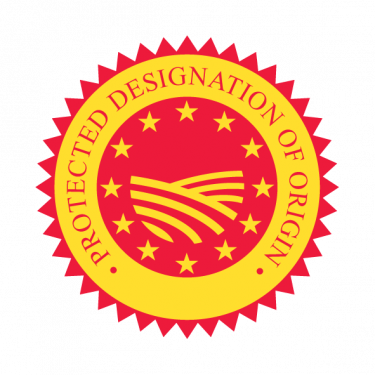
Registration of Rooibos as Protected Designation of Origin (PDO)
As published here on our website, the recognition by the European Commission of the ‘Rooibos’/’Red Bush’ PDO was published in the European Union Official Journal on 31 May 2021.
The Delegation of the European Union to South Africa (EUD), SA Rooibos Council (SARC) and Western Cape Department of Agriculture (WCDoA) welcome the announcement that the European Commission has approved the registration of the designation ‘Rooibos’/’Red Bush’ in its register of protected designations of origin (PDO) and protected geographical indications (GIs).
It is the first African food to receive the status of PDO in the European Union (EU). Protection for the PDO will allow South African producers of ‘Rooibos’/’Red Bush’ to market their products better in the EU. The registration will also allow the Rooibos industry to use the EU logo – which is well-recognised by consumers in Europe – for PDO purposes.
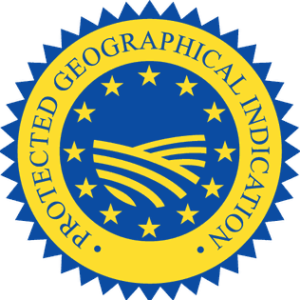
Geographic Indication (GI)
Rooibos has already been included as a GI under the Economic Partnership Agreement (EPA) between the Southern African Customs Union (SACU) and the EU, and its inclusion in the register of PDOs means that protection becomes permanent.
The PDO logo is also well-recognised by consumers in Europe and its use will provide an indication of the value of Rooibos as a unique product. In addition, when trademark searches are done in the EU register, it will confirm Rooibos as a protected name and registered GI, which wasn’t the case before.
The inclusion of Rooibos in the EU Register may also smooth our path when applying for third country GI status in other markets, such as China and India. Since SA is not party to the Lisbon agreement and does not have other bi-lateral GI agreements in place, we intend to use the Rooibos PDO GI, to continue the process with the World Trade Organisation (WTO) and the World Intellectual Property Organisation (WIPO) to secure the registration on an international level.
The Rooibos industry recognises the close connection between Rooibos, the area where it grows, as well as the community and their traditions. The goal is to protect, support and promote the sustainability of not only Rooibos, but the rich heritage of the industry as a whole, which is why we so doggedly pursued the PDO GI.
What is a PDO?
A PDO is an indicator that identifies and links a particular product to a particular region or locality, where a given quality, reputation or other unique characteristic is attributable to that particular geographical area. Product names registered as PDOs have the strongest links to their origin, since every aspect of production, processing and preparation must take place in that specific origin using recognised know-how.
The registration means ‘Rooibos’ or ‘Red Bush’ can only be used to refer to the dried leaves of 100% pure ‘Rooibos’/’Red Bush’ derived from Aspalathus linearis that has been cultivated or wild-harvested in designated local municipalities of the Western and Northern Cape. ‘Rooibos’/’Red Bush’ may be blended with teas, infusions or other products, whether or not for human consumption.
Distinguished quality
PGI/PDO recognition empowers consumers to distinguish quality products and trust that they are enjoying products which carry a known reputation linked to a specific geographical origin.
With this recognition, and in combination with government acknowledgment of the status and value of the Rooibos trademark and the assistance of the South African Rooibos Council, the Rooibos trademark has the protection it rightly deserves. For consumers and industry players alike, it provides the assurance of both quality and origin. With these crucial elements in place, the future for Rooibos looks bright and is likely one in which this treasured plant will go on to enjoy greater global popularity.
This article is an extract of ‘The Rooibos Story‘ by researcher Boris Gorelik and is published with the kind permission of the South African Rooibos Council.
Look out for forthcoming related articles in the series which will provide a greater in-depth overview on the history of Rooibos, its health benefits and the global marketplace.
